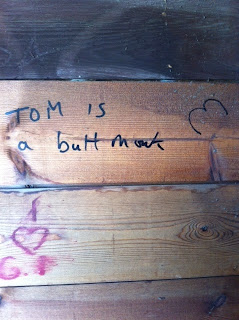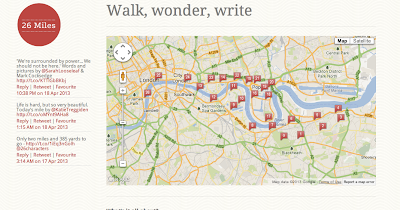Last week I turned away from my world for seven days. For the first time in my life, I took myself from family, home and work purely with the aim of writing. I was allowed to stay at Brisons Veor, a house perched on the very tip of Cape Cornwall, where writers and artists can spend time alone or in small groups. I went alone, and it was wonderful.
It was strange, too. Thirty years ago I lived alone for one year in France and since then I've always lived with other people. At Brisons Veor in December there is no one else around after dark: the coast watchers from the lookout post drove away at 4.00 pm, and the sun set at 4.30, and all I could see from my windows was the red light flashing off Land's End. All I could hear was the waves below, rushing up the rocks and into the cove.
It felt very empty.
But after a few days, it felt right. Each day I walked on the cliffs, I thought, I ate cake, and I let the ideas which have been piling up in the corners of my mind for years come together.
I've wanted to write a long story for a long time. I've had plot, characters, situation and setting jigging about in my mind, all disconnected and jumping out of reach in the short moments I've had to try and pull them towards me.
This week they came together. It will take me months or maybe years to write them into being, but I've started, and I'm very happy.
Thank you Brisons Veor. I hope I'll be back.


















































